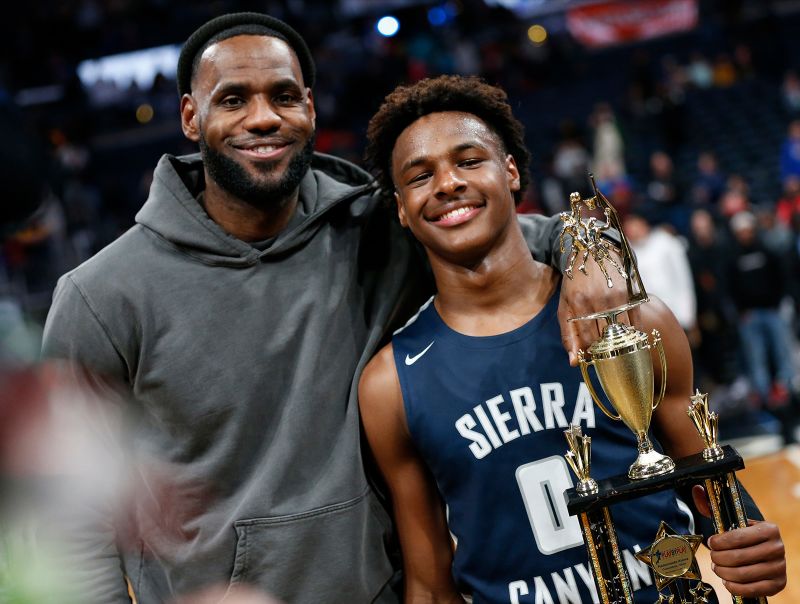
‘Get an ambulance here now’: 911 call reveals response to Bronny James’ cardiac arrest
Bronny James, the 18-year-old son of NBA legend LeBron James, has been released from Cedars-Sinai Medical Center after being treated for a sudden cardiac arrest, the Los Angeles hospital said Thursday.
“Although his workup will be ongoing, we are hopeful for his continued progress and are encouraged by his response, resilience, and his family and community support,” Dr. Merije Chukumerije, a cardiologist at the hospital, said.
Bronny James, an incoming freshman for the University of Southern California’s basketball team, suffered a cardiac arrest during practice at the University of Southern California and was hospitalized Monday, his family had said.
Chukumerije on Thursday complimented the “swift and effective response” of the USC training staff when James suffered cardiac arrest during basketball practice Monday and was hospitalized.
“He arrived at Cedars-Sinai Medical Center fully conscious, neurologically intact and stable,” Chukumerije said.
“Listen … listen to me,” the caller said to the operator. “Get an ambulance here now.”
“Alright, sir, we’re going to send help,” the operator responded. “Don’t hang up, sir, don’t hang up.”
The operator asks if there is “a doctor on scene” or a registered nurse and the caller says a doctor is not there.
Earlier Thursday, LeBron James tweeted about his son for the first time since the practice incident, thanking well-wishers for sending his family “love and prayers.”
“We feel you and I’m so grateful. Everyone doing great,” the Lakers star wrote. “We have our family together, safe and healthy, and we feel your love. Will have more to say when we’re ready but I wanted to tell everyone how much your support has meant to all of us! #JamesGang”
Cardiac arrest occurs when electrical disturbances cause the heart to suddenly stop beating. It may be fatal if not immediately treated but can be reversed by CPR and a defibrillator, according to the American Heart Association.
“He’s probably wearing a monitor to monitor his heart rhythms while he’s at home to see if there’s any abnormalities,” Gupta said. “But so far it sounds like there’s nothing serious that they have found and they feel comfortable releasing him.”
Sudden cardiac arrest among young athletes is rare but not unheard of. A 2011 study that examined NCAA student-athlete sudden deaths between 2004 and 2008 found cardiovascular-related sudden death was the leading cause of death in 45 cases, or about 9 each year.
“Adolescent male basketball players and college male basketball players, for reasons that we don’t fully understand, are by far our single highest risk group of athletes for sudden cardiac arrest,” Drezner said. “In my opinion, they should all be screened with more robust and intensive cardiac screening than occurs typically.”
Bronny James had a cardiac screening several months ago as part of a program for prospective NBA players, according to a source familiar with the matter. The screening included a transthoracic echocardiogram, which looks at blood flow through the heart and heart valves, and an EKG, which is a recording of the heart’s electrical activity, the source said. Both screenings came back with normal results.
The 6-foot-3 combo guard graduated this spring from Sierra Canyon High School in Los Angeles, where he averaged 14.1 points, 5.6 rebounds, 2.4 assists and 1.7 steals his senior year. He was rated a four-star recruit, and he stood out in the McDonald’s All-American Game in March, featuring some of the country’s top high school basketball players.
Experts say it’s hard to map out exactly what James’ recovery will look like until more is known about the cause of his cardiac arrest and his specific health condition. But the fact that he was treated immediately and is already out of the intensive care unit bodes well for his recovery, Drezner said.
